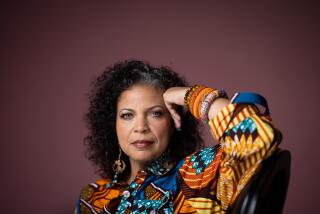How Los Angeles Can Benefit From the Farrakhan Controversy
- Share via
Smoothing the strained relations between African-American and Jewish leaders caused by the anti-Semitic statements of an associate of Louis Farrakhan might, on its face, seem virtually impossible. The Nation of Islam leader’s rebuke of Khalid Abdul Muhammad was ambiguous, and mainstream black leaders, although critical of Farrakhan’s handling of the incident, have not ostracized him. All this has made Jewish leaders wary.
African-American leaders, in turn, are a little more than irritated by the call to condemn Farrakhan, not only because it suggests that they should move in lock-step. They never demand of their white counterparts that they rise up en masse and denounce racists among them.
Still, the history of the two communities’ relationship offers plenty of resources to start to heal the wounds opened by the controversy. Therein lies a lesson for Los Angeles and its ethnic communities.
The black-Jewish relationship goesback to the turn of the century, when Jews were among the founders of the National Assn. for the Advancement of Colored People and the Urban League. More recently, Jews made up two-thirds of the white riders on the freedom buses in 1961. Three years later, according to Murray Friedman of the American Jewish Committee, Jews accounted for one-third to a half of the Mississippi “Freedom Summer” volunteers.
But the sustaining core of the relationship was and is the relationship between institutions: the American Jewish Committee, the Anti-Defamation League of B’nai Brith, the American Jewish Congress, the Jewish Federation and countless synagogues on one side; the NAACP, Urban League and the Southern Christian Leadership Conference and many black churches on the other.
All these organizations have strong roots in their communities, as well as experience in working with others to achieve a common goal.
The Black Power movement that grew out of the civil-rights movement shifted the energies of many African-Americans from coalition-building to self-help. But most African-American leaders refused to sever links to their Jewish counterparts.
So, among Jews and African-Americans, there is a memory of coalition and an infrastructure that enables them to reach out to each other in times of controversy or crisis. But continuing relations must be based on mutual respect, acceptance of the real differences concerning the problems of racism and anti-Semitism and poverty--and an understanding that one group cannot select the other’s leaders. Still, the tools of healing are available.
By contrast, who speaks for the Korean, the Latino, the Chinese, the Filipino or the white community? When tensions between these communities arise, which organizations can legitimately represent their communities?
In the Chinese-American community, the Chinese Consolidated Benevolent Assn., formed in 1853 and representing 28 family associations, plus other groups in the community, comes closest. But it is one institution in a far more diverse community than the one it represented more than 100 years ago. There are other coalitions of organizations, but their leaders do not know their counterparts in other communities.
For Jews and African-Americans--and for the city--the Farrakhan issue raises the larger question of leadership: what it means to lead one community in a world of many communities; how conflicts are identified, and how communities are brought together. It is a political process, one of talking, learning more about each other and searching out a common ground. The outcome will probably be more a truce than a new age of peace, but the dispute will not become an obstacle to cooperation on other issues.
The lesson for Los Angeles--and America--is that each community must develop leaders and institutions that can speak for them, and then trust them to reach out, to negotiate, to reach an accord. It is a political process in which every group must engage.
More to Read
Sign up for Essential California
The most important California stories and recommendations in your inbox every morning.
You may occasionally receive promotional content from the Los Angeles Times.










